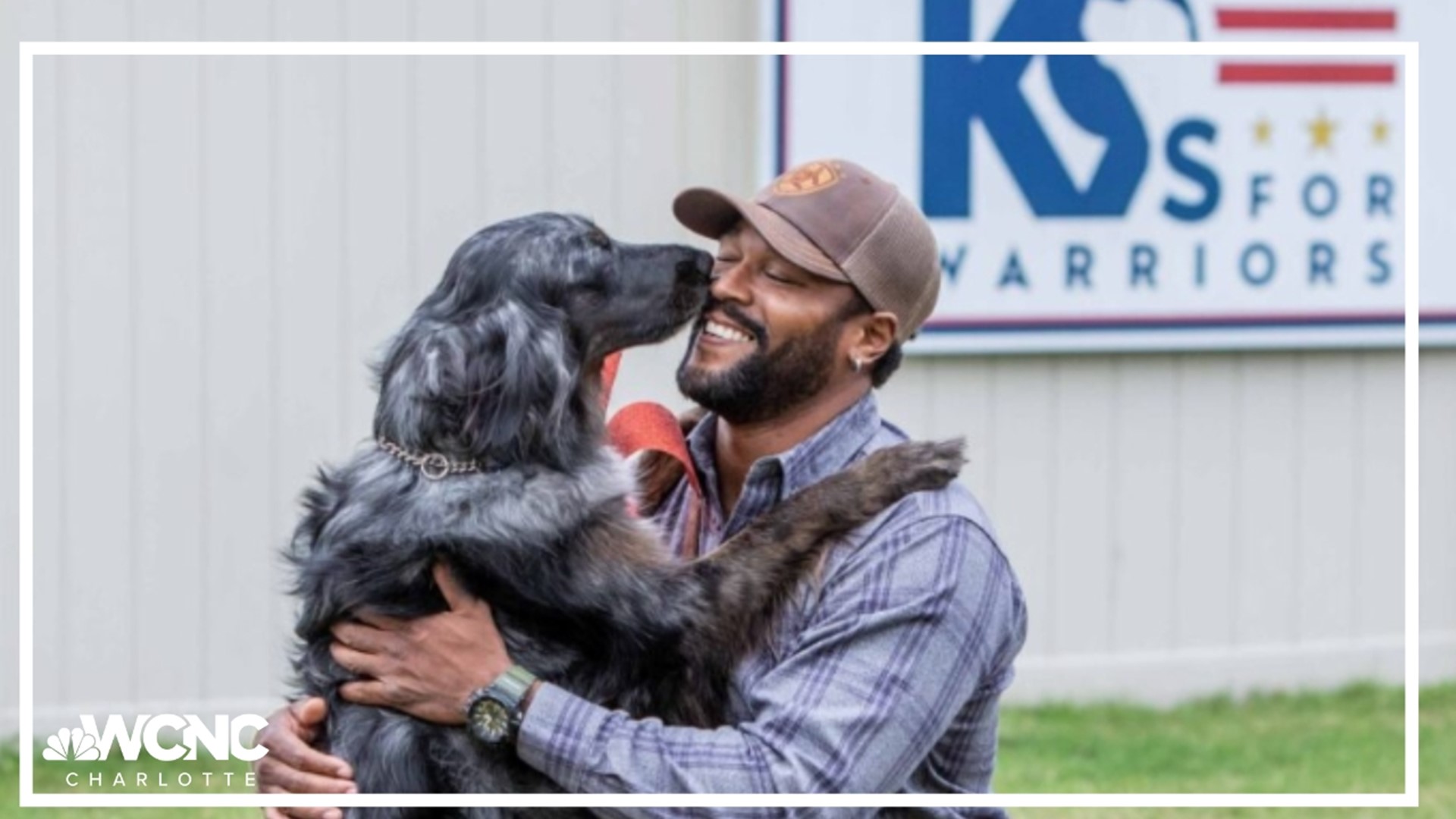CHARLOTTE, N.C. — It’s a relationship that requires having each other’s back.
For Quinton Loving Jr. that’s easy. That’s because Moly, an Australian Shepherd, is not just his service dog, but also his best friend.
“We go everywhere together. We do everything together. I wake up and she’s right there like 'get up man, let’s go!' I go to bed, she’s right there tucking me in,” Loving said as he smiled.
However, life before Moly was tough.
“I didn’t really go out and really do things. When I did do things I was moving pretty quickly. I was focused on getting in and getting out. (I was) nervous. I definitely had a lot of anxiety,” Loving explained.
In 2006, loving joined the U.S. Marine Corps. He was stationed at Camp Pendleton in California. Shortly after, an 18-year-old Loving was deployed to Iraq.
He served four years in the military. But adjusting to life as a civilian wasn’t an easy task.
“You don’t have that stability anymore. It’s tough,” mentioned Loving.
Loving tried different treatments to deal with his post-traumatic stress disorder. Desperate for a sense of normalcy, in 2019 he applied for K9s For Warriors, an organization that pairs military veterans struggling with PTSD along with other physical and emotional trauma with trained service dogs.
K9s For Warriors says it’s dedicated to ending veteran suicide. Recent numbers from the U.S. Department of Veteran Affairs show nearly 6,400 veterans died by suicide in 2021, an increase of 114 more than in 2020.
According to the VA, seven out of every 100 veterans will suffer from PTSD in their lifetime.
For Loving, in 2022 help had arrived.
“I opened my arms wide, and she (Moly) ran straight to me,” he said.
It was a second chance not only for him but for Moly too.
“Moly came from a hoarding case. I think there were 33 other dogs. K9s For Warriors rescued her. She was in pretty rough shape,” Loving explained.
These days the pair is almost inseparable. Loving’s advice to other veterans in need is to not be afraid to ask for help.
“Don’t knock it until you try it,” he stated.
In September, the U.S. Department of Defense announced new suicide prevention efforts for the military community. It includes improving mental health care and suicide prevention training.
Contact Nick Sturdivant at nsturdiva1@wcnc.com and follow him on Facebook, X and Instagram.
If you or a loved one are facing thoughts of suicide or self-harm, there is help readily available. You can call Suicide and Crisis Lifeline at 988 or chat with them online. There are also resources in North Carolina available here and in South Carolina available here.

